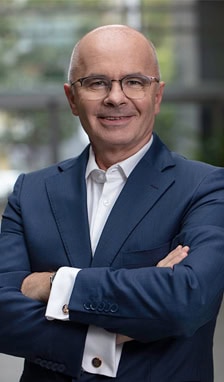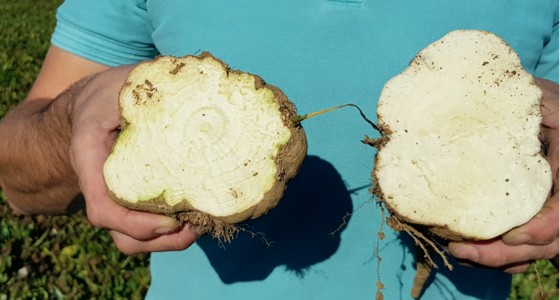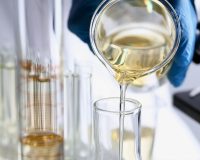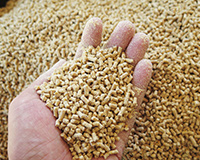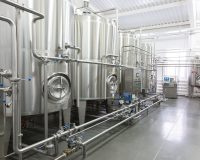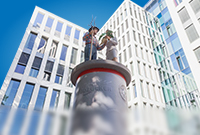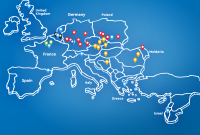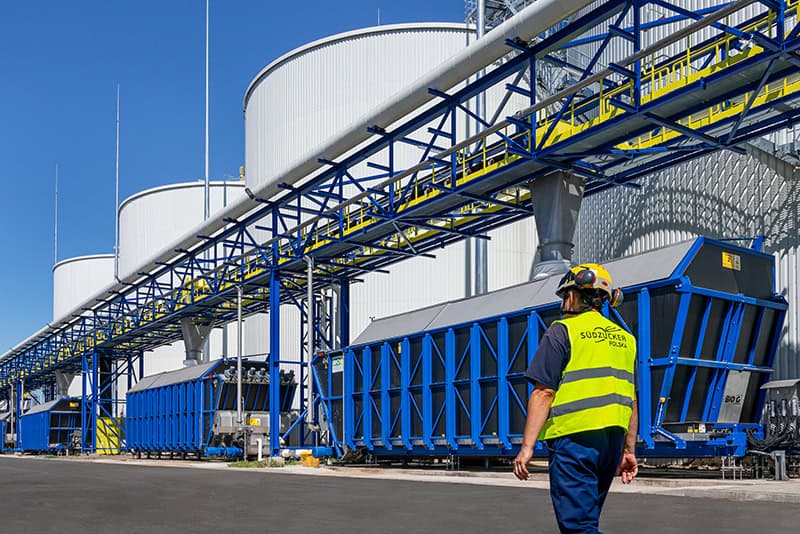
Energy Transition at Südzucker Polska: Strzelin Switches to Green Energy
Südzucker Polska, part of the Südzucker Sugar Division, has taken a major step towards climate neutrality: For the first time, the 2025/26 Strzelin beet campaign will be powered by biogas—marking a shift to green energy. The Strzelin sugar factory now produces green gas from sugar beet pulp—a by-product of sugar production. It supplies the factory itself and surplus biomethane is fed into the gas grid.
In early September, Südzucker Polska inaugurated the new biogas plant at the Strzelin site—now the largest and most advanced of its kind in Poland. Powered by biogas from sugar beet pulp, the factory covers its own energy demands. Any surplus biomethane is fed into the gas grid, making it the first biomethane plant in Poland to be connected to the gas distribution network. Due to its energy potential, this installation represents a unique investment on a European scale. Beyond energy, the project also contributes to the circular economy: the digestate from biogas production is used by local farmers as a high-quality organic fertiliser.
Mariusz Pawełek
CEO of Südzucker Polska“Expanding the biogas plant and significantly increasing its capacity is another key milestone in our energy transformation. The current beet campaign is powered up to 80% by biogas, bringing us closer to full energy independence. Surplus green gas is injected into the grid, in line with its absorption capacity. According to the strategy of the Südzucker Group, of which Südzucker Polska S.A. is a part, we aim to reduce CO₂ emissions by 50.4% (Scope 1 and 2) by 2030. The Strzelin sugar factory is pioneering these changes. We strive to produce Poland’s first CO₂-neutral sugar.”
Flagship Project for the Südzucker Sugar Division
The project is a flagship initiative for Südzucker Polska. From the beginning of construction to the operational launch, Südzucker Polska completed the project in under two years. The first phase of modernisation began in the second quarter of 2024, marked by two major milestones. The replacement of a coal-fired boiler with a gas-fired boiler and the construction of a gas-powered lime kiln. This transition from coal to natural gas resulted in a nearly 50% reduction in CO₂ emissions and a 96% reduction in particulate matter.
The expansion of the 45 kW biogas plant was a key investment in the second phase of the project, it represents the cornerstone of Strzelin’s energy transformation. The facility now includes a biomethane upgrading station and the infrastructure for injecting biomethane into the gas grid. In parallel, Südzucker Polska S.A. and Polska Spółka Gazownictwa (the Polish Gas Company) built a 9-kilometre section of gas pipeline to support the new infrastructure.
The biogas plant enables the production of over 9,000 m³ of biogas per hour. Heat and electricity are generated through anaerobic methane fermentation in fermentation tanks.
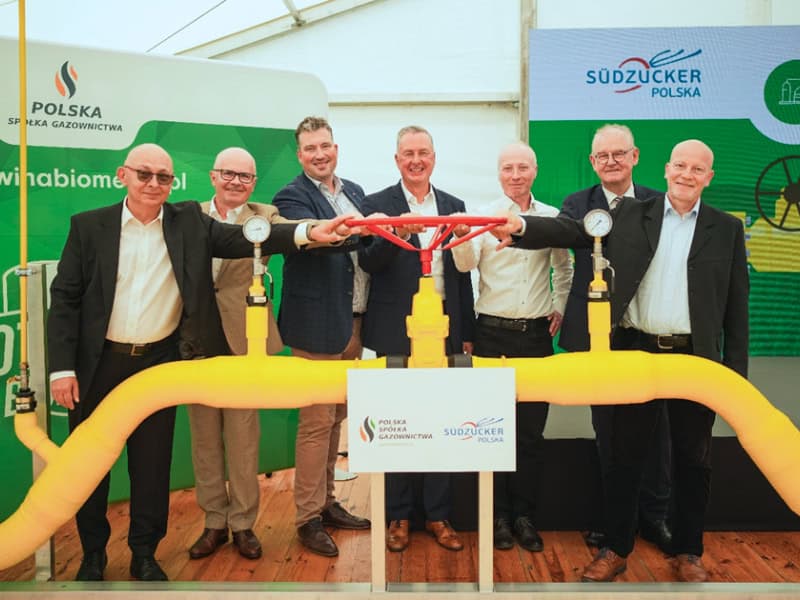
The facility also includes:
- A biomethane upgrading station, where biogas is refined into clean biomethane
- An infrastructure for injecting biomethane into the national distribution network
- Four 10,000 m³ fermenters and two post-fermenters the core of the anaerobic digestion process, where organic material is broken down into raw biogas.
- An advanced digestate purification system that converts post-fermentation material into clean water and fertiliser.
Modern Biogas Plant Closes the Loop
The new plant not only marks a major milestone in Südzucker Polska’s energy transition—it also follows the principles of a circular economy: Beyond energy generation, the digestate from biogas production is repurposed by local farmers as organic fertiliser, enriching soils and closing the loop in sugar production and beet cultivation. Nothing goes to waste.
By converting plant residues into green energy, clean water, and nutrient-rich fertiliser, the facility demonstrates how sustainability and resource efficiency can go hand in hand.
The successful implementation of this project underscores Südzucker’s commitment to sustainability and innovation in the sugar industry. Thanks to this investment, the Strzelin sugar factory is becoming a leader in green transformation. This is more than a technological upgrade—it’s an investment in the future. And every one of us plays a role in it.
This initiative contributes directly to the Südzucker Group’s emissions reduction targets, aligned with the 1.5°C goal and validated by the Science Based Targets initiative (SBTi).
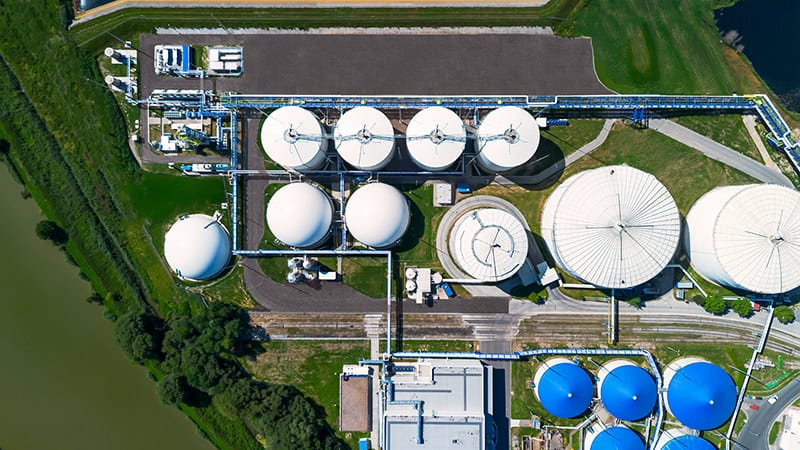
Biogas: A Scalable, Renewable Energy Solution for a Low-Carbon Future
Biogas is widely recognised as a form of “green gas” due to its renewable origin and climate-friendly profile. The term “green gas” refers to gases that are either carbon-neutral or low in CO₂ emissions and derived from sustainable sources. Biogas meets these criteria by utilising organic residues that would otherwise decompose and release greenhouse gases. Moreover, the CO₂ emitted during its use is offset by the CO₂ previously absorbed by the plants used in its production—creating a closed carbon loop.
Unlike weather-dependent renewables such as wind and solar, biogas provides a stable and controllable energy supply—available regardless of weather conditions, seasonality or time of day. It can be stored, transported, and used flexibly across sectors, making it a strategic pillar in the transition to a resilient and decarbonised energy system.

